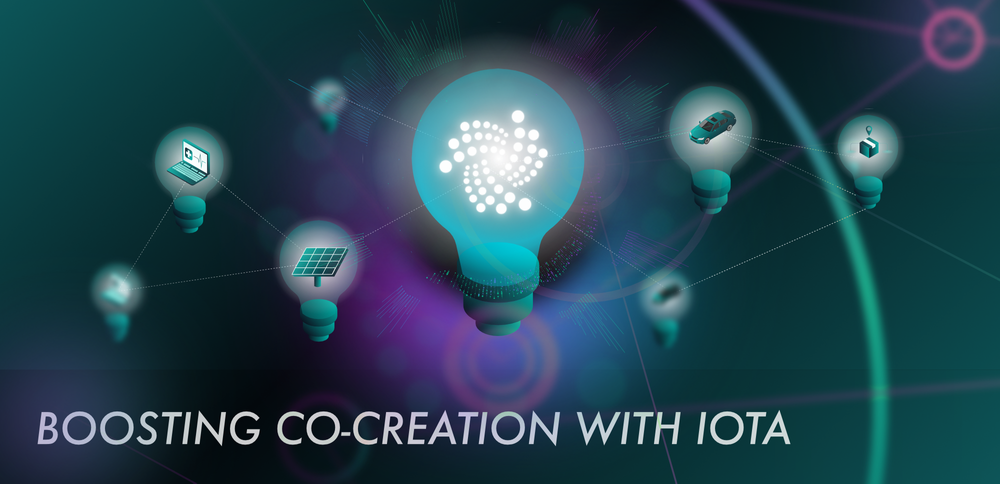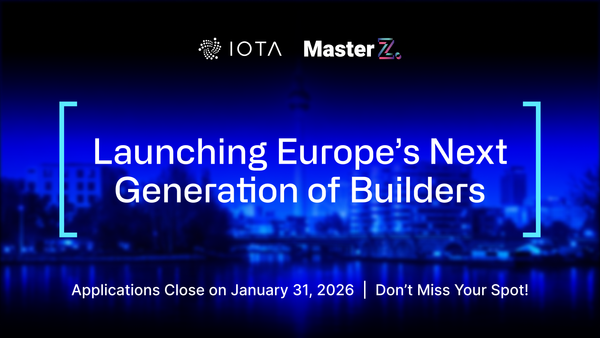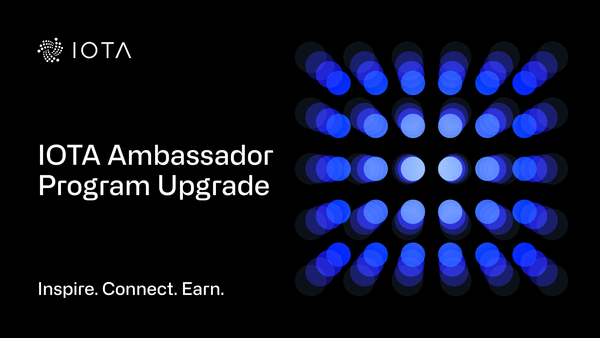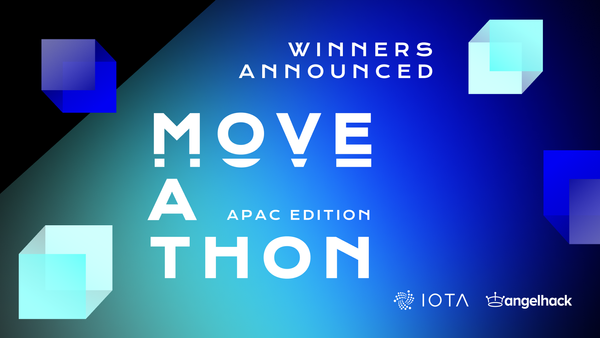Blockchaingers 2018 — Boosting Co-Creation with IOTA
As the Internet-of-Things expands, IOTA unveils a new digital Blue Ocean best explored via co-creation. As illustrated recently by breakthrough innovation delivered by EnexisandElaadNL with the creation of the world’s first IOTA Smart Charging Station, smart innovation often happens where silos meet — in this case where Power & Utilities and Mobility overlap. As Data streams and new value flow bridge different worlds together, it is becoming evident that cross-silo collaboration is critical to the success of the smart revolution.
Accordingly, in order to explore the Economy of Things via concrete co-creation and experimentation, IOTA teamed up with Blockchaingers’ hackathon in the Netherlands in April, 2018 alongside a growing ecosystem of Distributed Ledger Technology enthusiasts and technology providers. The 2018 edition event was the world’s largest blockchain/DLT hackathon to date with over 700 international participants coding solutions over three days and nights.
Blockchaingers Hackathon 2018
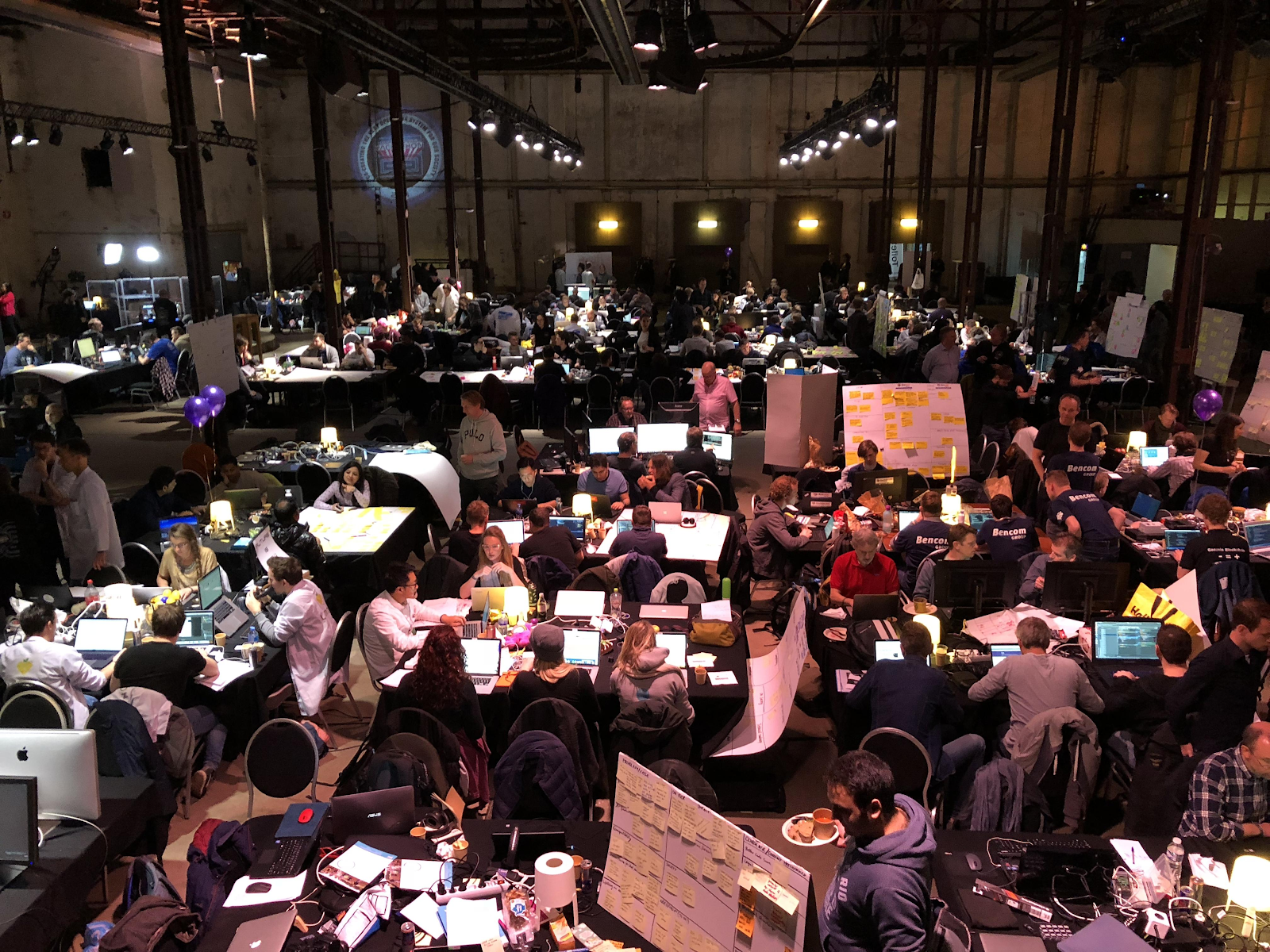
Teams of hackers work in one of the seven tracks to solve global challenges on the spot and co-create the next operating system of our society.
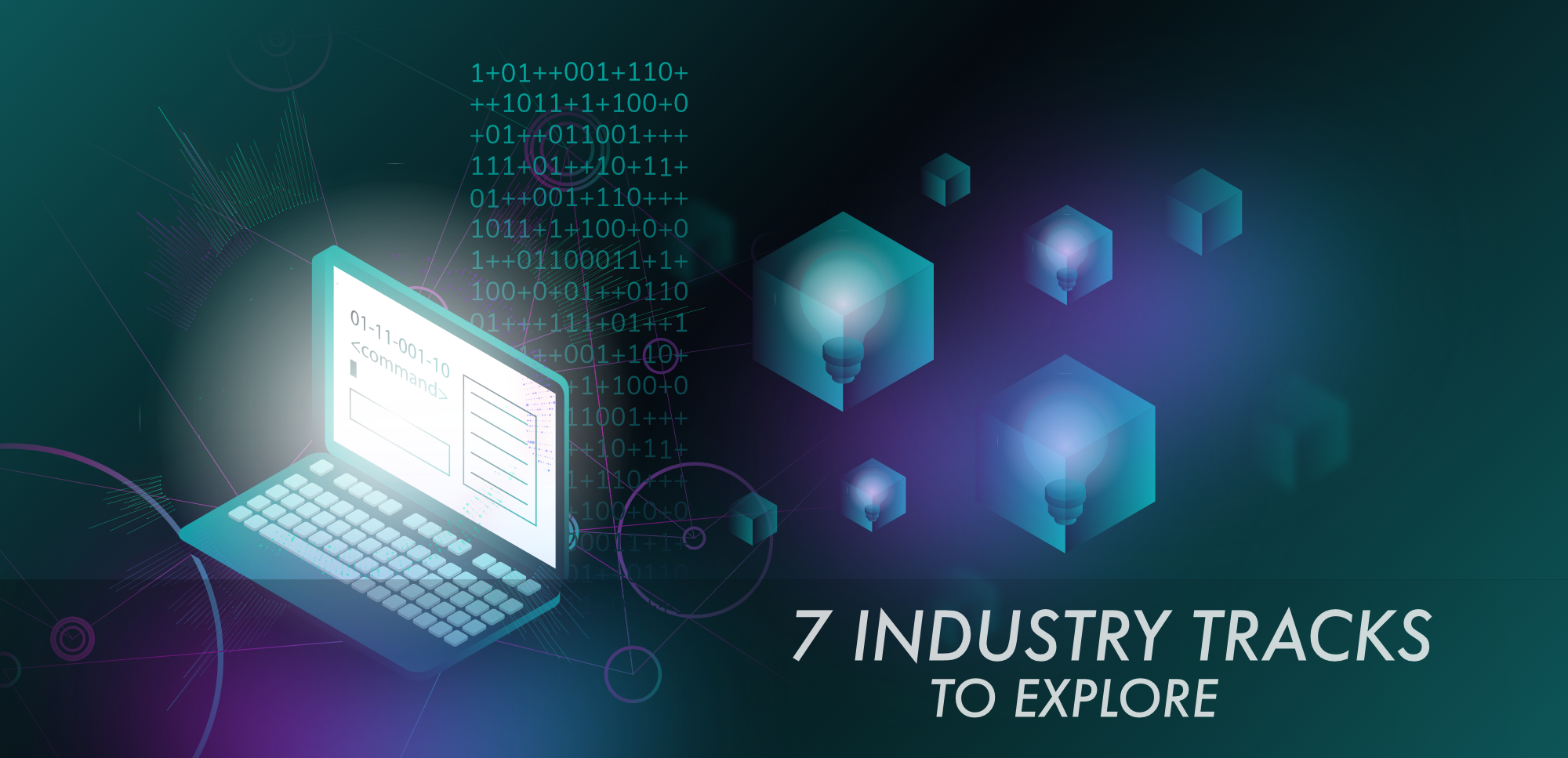
The tracks and their sponsors were:
- Future of Pensions — APG, the biggest pension funds manager of the Netherlands
- Health — University Medical Center Groningen (UMCG)
- Energy transition — NUON/ Vattenfall, Gasunie and New Energy Coalition
- Public safety — the Dutch National Police
- Digital Nation’s Infrastructure — the Dutch Chamber of Commerce and Kadaster (the Dutch land registry)
- Machine 2 Machine Economy — Elaad (incl Enexis, grid operator)
- Global Digital Identity — DUO (the Dutch national student loan agency) and Sweetbridge
IOTA JEDIs During the Hackathon
After a flash visit from Wilfried Pimenta, Head of Business Development at IOTA to various working teams, Harm van den Brink and Ton Smets from ElaadNL operated as IOTA Jedis at the Blockchaingers Hackathon. The goal of being a JEDI is to assist everybody, on every team, whenever they need (technical) assistance. During the hackathon more than 150 JEDI’s were available, from legal and tax, to the IOTA core technology. Multiple teams requested technical help but also answers to higher level questions on how IOTA could be integrated and beneficial to the goal they wanted to achieve.
The hackathon started with a Masterclass about IOTA, which was given by Harm. The goal of the masterclass was to really dive deep into the tech of IOTA, and to give the participants of the hackathon a kick start on developing. The class was divided into two sections: a lecture about IOTA and the code, and a hands-on coding demo. The coding demo included having an IOTA transaction containing a message written by the participants projected on the screen during the masterclass.
“Those talks, discussions and masterclasses are great to have, it gives more insight and helps to better understand how people want to use the technology. Since IOTA is made for real products to work seamlessly, these discussions help creating a better protocol. The feedback from the community was also valuable. It’s always cool to see that people are actually surprised that they can create a IOTA transactions, with 0 value, and transport data by doing so. They are amazed that this works, without having to have any IOTA.”Harm van den Brink noted.
“Those talks, discussions and masterclasses are great to have, it gives more insight and helps to better understand how people want to use the technology. Since IOTA is made for real products to work seamlessly, these discussions help creating a better protocol. The feedback from the community was also valuable. It’s always cool to see that people are actually surprised that they can create a IOTA transactions, with 0 value, and transport data by doing so. They are amazed that this works, without having to have any IOTA.”Harm van den Brink noted.
The IOTA Jedis prepared the hackathon by setting up multiple nodes, on mainnet and testnet, to support all the projects being built on IOTA. It turned out to be a good choice to do so, because it allowed people to start developing with IOTA much faster. Having everything setup before the start, allowed the Jedis to really dive into the technical questions rather than first still having to setup everything.
We interviewed three really interesting teams and concepts which we explore deeper at the end of this blog post:
- — = + (LESS IS MORE) with participation of Gasunie, participant to the IOTA Data Marketplace
- d-VAULT with participation from privacy matters, Alliander, Nuon Vattenfall
- WeQuest backed by an international and highly skilled team
Take-aways from Blockchaingers’ Hackathon 2018
Developing with IOTA in 48 hours is possible thanks to collaboration between developers, entrepreneurs and corporations. In some cases the Data Marketplace developed by IOTA offered a fast track and easy onboarding to demystify IOTA and open mindsets to new IOTA-enabled possibilities.
M2M Economy is not just about machines. The Economy of Things serves the best interest of citizens and addresses human centric data opportunities and challenges characteristic of the connected era. IOTA can contribute to new business models that are compliant to the recently established GDPR regulations.
At the Blockchaingers, all code developed is open-source and it is the team performances that are evaluated. This approach to open innovation is completely in line with IOTA’s ambition to foster an open and permissionless ecosystem of innovation. We can’t wait to come back next year.
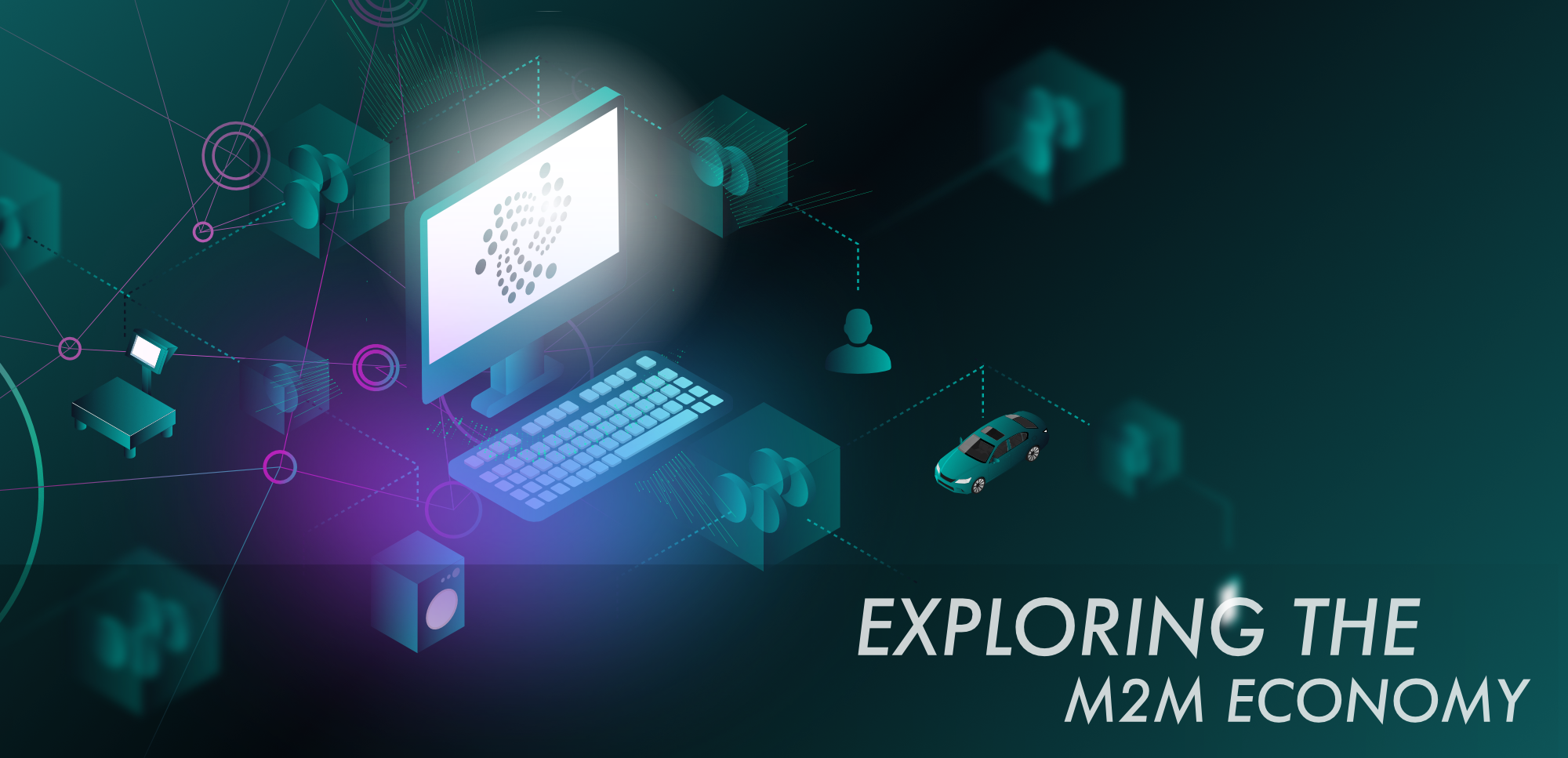
Interview #1: — = + (LESS IS MORE)
Under the lead of Peter Baard, Manager ICT Services at Gasunie, the team had its first exposure to the IOTA Tangle prior to the hackathon by joining the IOTA Data Marketplace Initiative.
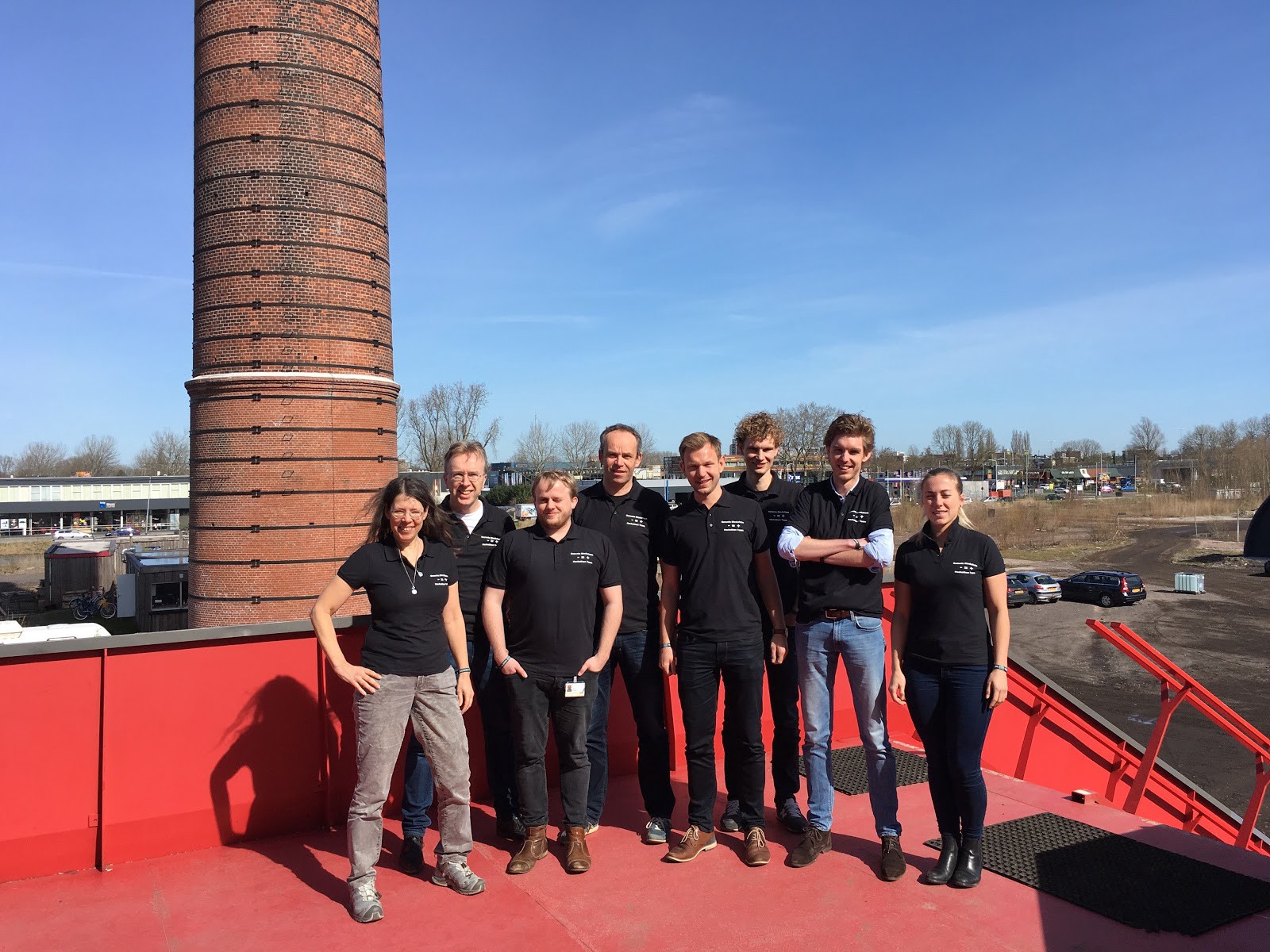
N.V. Nederlandse Gasunie is a European gas infrastructure company. The company provides the transport of natural gas and green gas via its subsidiaries Gasunie Transport Services B.V. (GTS) in the Netherlands and Gasunie Deutschland in Germany. The company also offers other services in the gas infrastructure field, including gas storage and LNG. https://www.gasunie.nl
The problem worth solving: Enabling new possibilities to aid the energy transition with the efficient use of new distributed ledger technologies and smart “less energy” services. In order to tackle the challenge, the team included a mix of business, functional and technical expertise and a lot of energy to experiment and learn during the weekend.
What does your MVP do?
The solution/concept was based on IOTA and focused on applying the “less is more” perspective not just on the new energy saving services itself but also on the how the solution is made: concept, data exchanged and technology used.
Why is this important?
For example, lower energy usage was one of main reasons to select IOTA over other available distributed ledger technologies next to scalability and the IoT focus. Also to keep it simple and understandable for the user is essential to increase the necessary citizen participation.
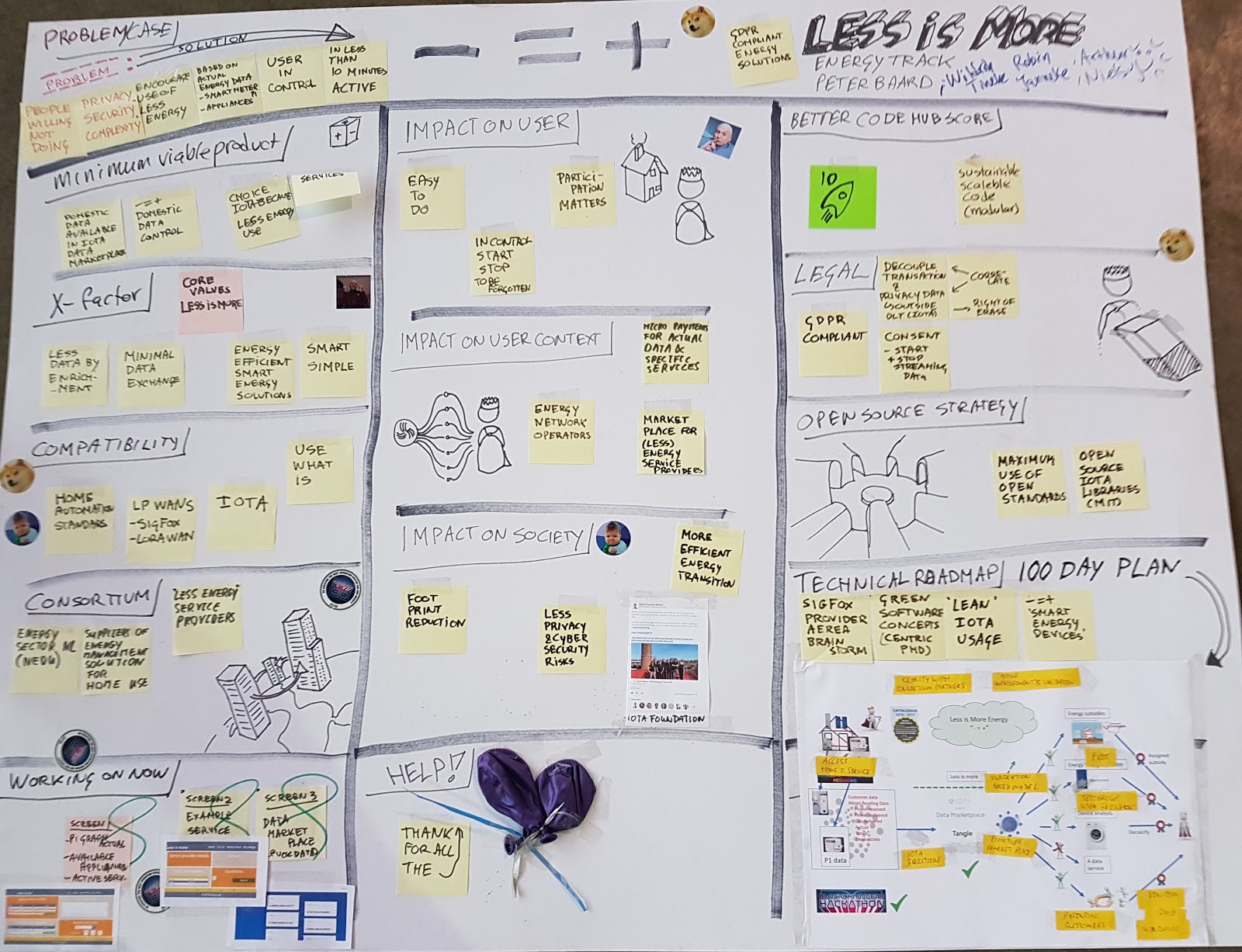
During the hackathon we discovered that GDPR requirements and our “less is more” perspective were nicely in sync with respect to the handling of privacy related data like more decentralized processing, the user in control, only collect data necessary for the service delivered, enabling anonymization to remove barriers for sharing data that can aid “less energy” services and more efficient usage of the energy infrastructures.
What are your next steps?
The next steps are to internally share the findings and solution ideas and to follow up with other teams and organizations to see where we can cooperate with new solutions that aid the energy transition.
See more informationhere.
Interview #2: d-VAULT
The energy transition needs to speed up, and we believe we can help. Many factors hinder the transition, some societal and some technical, but one key factor is that despite Europe investing billions in smart meters, the current billing cycle blocks lacks flexibility and takes far too long.
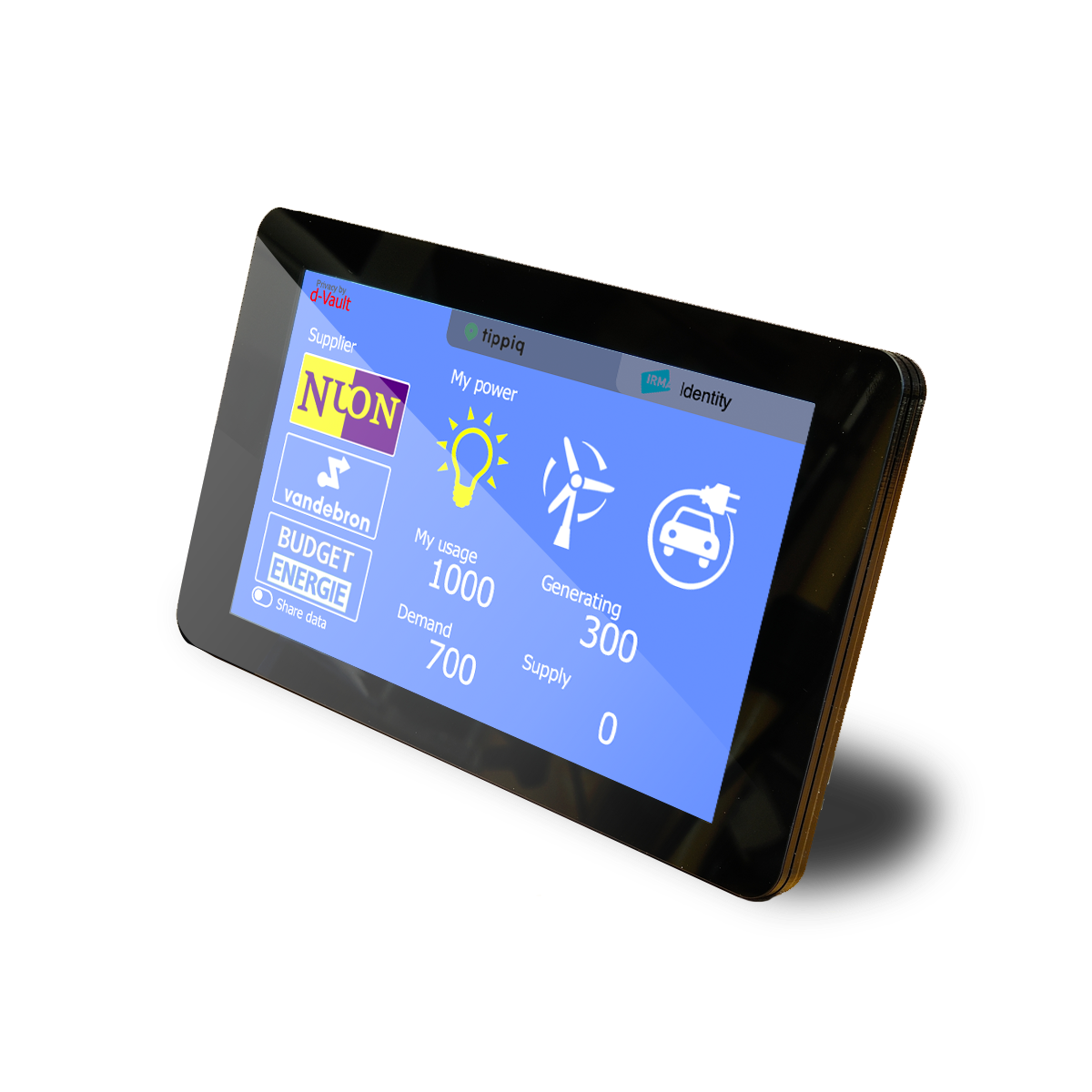
We need to move to a world where the impact of energy usage can be tracked and billed in near real-time — while preserving the privacy of end users. From this we will see new markets and possibilities emerge, from flexible time-of-use contracts, to peer-peer sharing, etc. But it all starts with effective energy usage tracking and billing. This is hard to implement in the current system because central systems come with all kinds of privacy issues.
The hackathon offered our team an opportunity to showcase that if you let go of the centralized paradigm and use DLT instead, these issues become a lot easier to solve. Thanks to the attention the hackathon generated for our solution, it is now much easier to gain access to the board room level in energy companies and policy makers in government.
At the hackathon we had a long chat with a member of the Dutch parliament about our concept. He would have been much harder to reach without the hackathon.
What does your MVP do?
We have built a smart meter system that has the ability to communicate with its peers from the same energy supplier. In this way the meter systems can calculate the exact usage of each supplier within a certain grid area, for each quarter of an hour period. We can do this without revealing any traceable data about the households involved. This makes it fully GDPR compliant.
At this moment it takes over 15 months before metered data is definitive. Final settlement between market parties can only take place on this definitive data. Our solution supplies definitive data using real measurements in only 15 minutes and therefore offers much higher resolution and precision.
Why is this important?
With our system, energy suppliers are instantaneously confronted with the energy-behaviour of their own customers. At the moment they have no real incentive to stimulate consumers to alter their behaviour, because all good and bad behaviour is evened out by a system of estimations.
Everyone in the sector acknowledges that solving this issue will be a cornerstone in the energy transition, but also that it’s hard to solve because conventional solutions require the sharing of a lot of privacy sensitive data. Because we can now solve the privacy issue and still offer access to data that is needed for extra flexibility, we have the potential to bring the transition a step closer to reality. We have shown there is a way, so now it’s down a question of will.
What are your next steps?
At the moment, the Dutch government is drafting its proposals on how to tackle the energy transition. We are working very hard to build a coalition that will put our concept on that table, so it will become part of the agenda of the Dutch government. We need about a year to develop our concept further so we can show its full potential.
If we have an update on our plans, we will share a link in this post about the Hackathon on LinkedIn.
Why have you used IOTA for your MVP?
To us, IOTA has many advantages over other DLT solutions:
- IOTA uses less energy than other technologies. The energy consumption of miners of other systems is simply unacceptable to us. It would be especially ridiculous for a concept that speeds up the energy transition, to cause a massive surge in energy use.
- IOTA transactions are free. This is essential if you need a large number of transactions. The cost of a system with paid transactions would run out of control real fast.
- IOTA offers asynchronous communication between peers, which nicely fits the architectural structure of our concept as a network of energy peers (smart meters). With IOTA we can use the computing power of our own peers in the network to validate transactions.
- A key feature of IOTA is that performance improves when the network scale increases. Obviously this is very attractive for our solution, which would create a very big network of IOTA nodes.
On the other hand IOTA still has some issues that need solving. For our solution to work properly we need to know to know the exact order of the transactions that take place. We have solved this issue in our MVP, but it would be far more efficient if IOTA transactions had proper timestamping. We know that the IOTA team is working on this issue, so we can focus our own attention elsewhere.
What is your team’s background?
- Oelfier den Haselaar (Domain expert): Oelfier was manager of NEDU, the association of all energy companies in the Netherlands. This role made him the main architect of the intercompany data exchange in the Dutch sector. In 2017 he started founded own company,PrivacyMatters, focussing on GDPR, Energy Market Structure and Process Design.
- Timen Olthof (Systems Architect): Timen is a freelance CTO and Tech Lead. He currently works as R&D Lead Decentralized Networks and Identities for one of the biggest Dutch grid operators (Alliander). He likes creating IT architectures while building working hard- and software.
- Ruud Hendrikx (Data Scientist): Ruud currently works as a Business Analytics Consultant and Blockchain Developer for QNH. His main area of interest is emerging information technologies that are expected to have a big impact on society in the near future.
- Erwin Rooijakkers (Software Engineer): Erwin is employed by Alliander as a Software Engineer working on various innovative solutions for R&D and IT Delivery. He likes to craft beautiful and maintainable code that makes the world a better place.
- Dennis Smit (Scrum Master and Visual Designer): Dennis Smit is Director Project Management for Ahold Delhaize and a good friend of the team.
Interview #3: Team WeQuest — a game to showcase the world of tomorrow on the DLT of today
The economy is a world-wide game. Like every game, it is based on the resources, the roles, and the rules between them. We have been playing a competitive game for a while, and the rules created winners and losers. WeQuest is the game-changer, where new rules are designed to improve wellbeing and equality of opportunity, while respecting planetary boundary conditions.
WeQuest is a design for a novel social coordination system built on decentralized ledger technologies which enables humanity’s transition from broken political-economic frameworks. Our Decentralized Autonomous Organization (DAO) joined the M2M track because it granted ‘crazy ideas’ a podium so that we could establish connections with talented future collaborators and projects who share our philosophy. The M2M track at Blockchaingers appealed to our desire to express a deeper and broader viewpoint on DLT’s significant social and anthropological potential beyond myopic financial and technological implementations seen in most DLT projects.
What does your MVP do?
- We have created a digital infrastructure for a new macro-system which allows solutions to problems to click in to it, like an economy but with very different rules.
- WeQuest is a designed around provisioning human needs.
- The WeQuest Dapp is used to collect and publish geo-localised needs on to “needscapes”. Needscapes represent shared information for all mechanimals (humans and machines) to coordinate their activities.
- The app is used to connect people in need with providers, according to a dynamic set up by the core incentive system: the intensity of needs in a local area are fed into our algorithm which rewards players for fulfilling the greatest needs with minimal resources.
- By aligning individual reward with the common good, WeQuest creates a self-leveling dynamic system which socially coordinates and incentivizes local and global players to solve issues in highest need.
Why is this important?
Our current socio-cultural and political-economic systems are failing, we propose an alternative system which uses DLT technologies:
- WeQuest shows that humans, automata, machines and nature can all operate together in a prosocial way as an ecology to satisfy needs while regenerating the resource base, bringing our ecology back into harmony.
- Most of today’s major problems can be traced back to the fundamentally flawed design of the economic game.“There are a thousand hacking at the branches of evil to one who is striking at the root”— Thoreau
- We truly believe this system can enable a comprehensive solution — by addressing the root cause of the problems, we can transition from current socio-economic frameworks and install a new set of rules + an infrastructure, whose emergent behavior will yield solutions to many problems and take humanity to an abundant future.
What are your next steps?
- Release a ‘white-paper’ describing the entire protocol
- Validate our assumptions with local communities by installing the prototype gateway app. Communities include small villages, refugee camps, rural areas, ecovillages, groups with low economic linkage
- Build GlocalNet — a mesh network built on IOTA which can enable need information to be shared between peers to enable responsive, resilient local and global coordination
- Create a foundation — non-profit & non-government
Ongoing network growth:
- Seeking funding and grants — currently applying for social innovation grants
- Seeking hackers who are passionate about solving global issues via systemic change to join our DAO
- Continuing partnerships with open sharing economy initiatives
Why have you used IOTA for your MVP?
Although our concept is a blockchain-agnostic layer above the blockchain and internet stack, IOTA was chosen because of some key advantages:
- It does not require transaction fees
- The DAG structure provides high availability, resilience and responsiveness, that makes IOTA’s network available, and ready to receive and send data, even in times of a network partition.
- The ability to conduct peer-to-peer transactions with data from detached tangles without an internet connection
- Particularly, since it is important for a new economic system to take the best of global and local, we are implementing an IOTA mesh-net which we call ‘Glocalnet’: Glocalnet enables us to create a resilient, distributed, organic social coordination system which deals responsively with merging/parting of economic submeshes, natural disasters, etc.
- It enables local and global reward structures to integrate sensibly
- The system can operate at any scale, including a combination of multiple scales
- It is more important that a social coordination system never breaks down, than simply providing a globally normalised account of contractual agreements (transactions)
What is your team’s background?
WeQuest stems from a synthesis of ideas from the collective of humanity, being implemented by a highly skilled team of international people who get together around a DAO.

